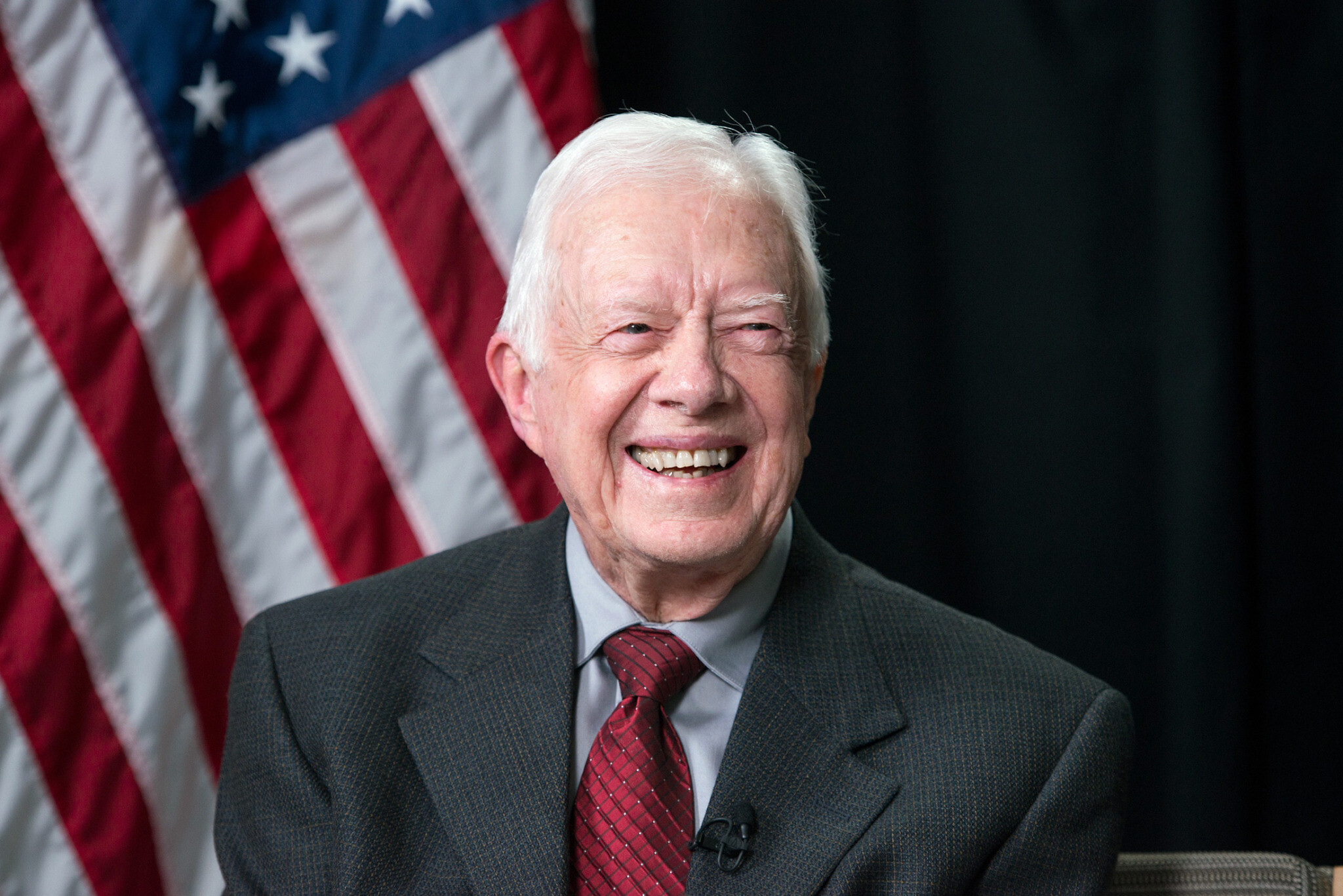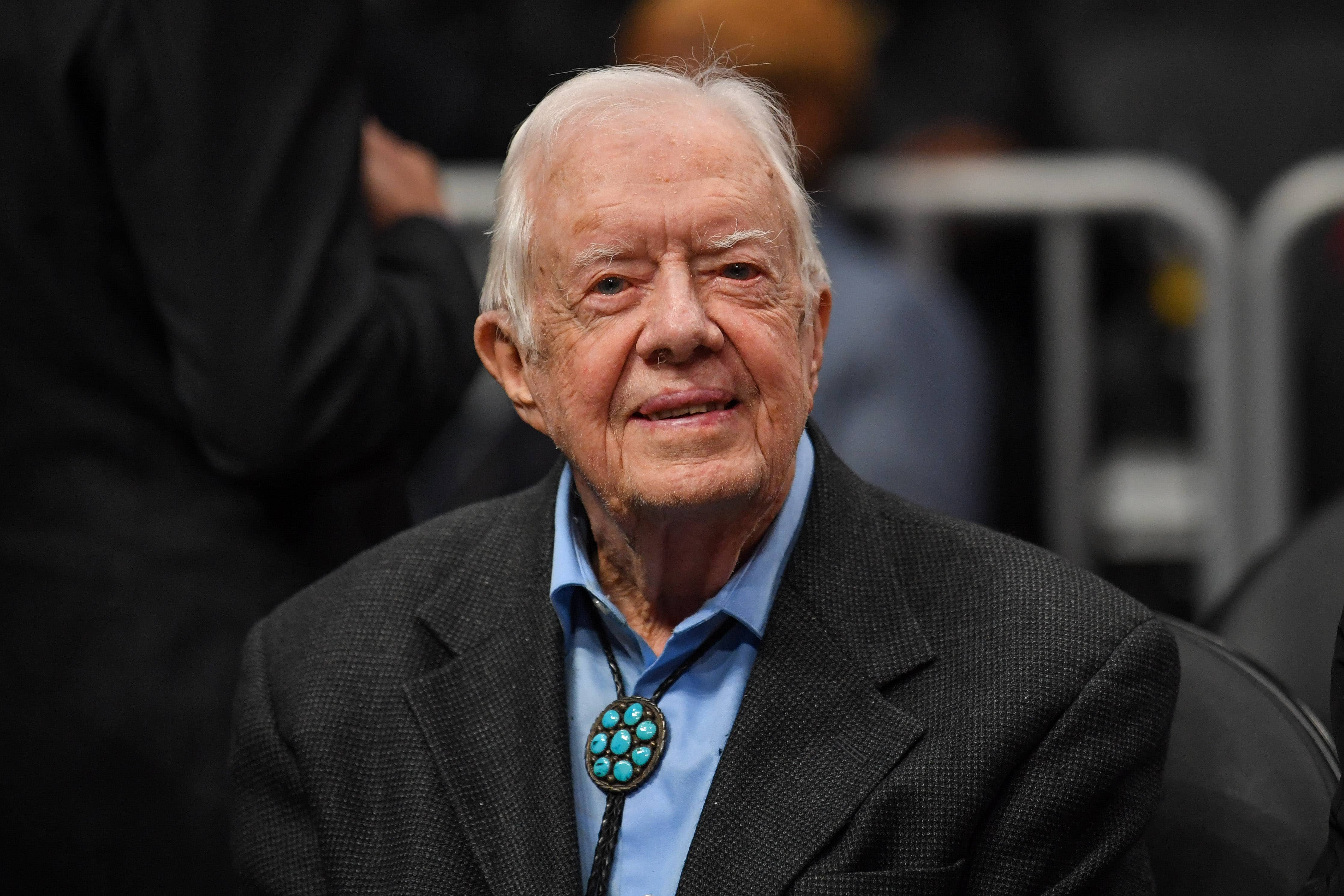Jimmy Carter’s Domestic Policies

Jimmy Carter’s domestic policies aimed to address the economic and social challenges facing the United States during the 1970s. His policies focused on energy conservation, economic recovery, and social welfare.
Jimmy Carter, the 39th President of the United States, is known for his dedication to human rights and diplomacy. His work has inspired many, including Tamayo Perry , a renowned artist and activist. Perry’s vibrant paintings and sculptures reflect Carter’s commitment to peace and social justice, capturing the essence of his legacy and continuing its impact.
Economic Policies
Carter’s economic policies were designed to combat inflation and unemployment. He implemented a series of measures, including wage and price controls, tax cuts, and increased government spending. While these policies initially had some success in reducing inflation, they ultimately failed to address the underlying structural problems of the economy.
Jimmy Carter, a former US president, has been a prominent figure in international relations. His work on human rights and peace has been recognized worldwide. In a similar vein, the India vs Bangladesh cricket match has garnered much attention. The match, which was held in Dhaka, Bangladesh, saw India emerge victorious.
Carter’s commitment to diplomacy and understanding resonates with the spirit of sportsmanship and fair play exhibited in the match.
Energy Policies
The energy crisis of the 1970s was a major concern for Carter. He proposed a comprehensive energy plan that included measures to promote energy conservation, develop alternative energy sources, and reduce dependence on foreign oil. While some of these policies were successful, others, such as the creation of a synthetic fuels industry, proved to be costly and ineffective.
Jimmy Carter, the 39th President of the United States, played a pivotal role in international diplomacy. His efforts to mediate conflicts extended beyond the Middle East, reaching as far as the Indian subcontinent. Notably, Carter’s involvement in the India vs Bangladesh conflict helped pave the way for a peaceful resolution.
His legacy as a peacemaker continues to inspire efforts to resolve conflicts around the world, demonstrating the enduring impact of his presidency.
Social Welfare Policies
Carter was a strong advocate for social welfare programs. He expanded Medicaid, increased funding for education and healthcare, and created a new cabinet-level department to address urban problems. These policies had a positive impact on many Americans, but they also contributed to the growing federal deficit.
Impact of Carter’s Policies
Carter’s domestic policies had a mixed impact on American society. While some of his initiatives were successful, others were less effective. His economic policies failed to fully address the challenges of inflation and unemployment. His energy policies helped to raise awareness of the need for energy conservation, but they did not fully solve the energy crisis. His social welfare policies expanded access to healthcare and education, but they also contributed to the federal deficit.
Jimmy Carter’s Foreign Policy
Jimmy Carter’s foreign policy was guided by his belief in human rights and his commitment to a more just and equitable world. He sought to improve relations with the Soviet Union and other communist countries, and he played a key role in the Camp David Accords, which led to a peace treaty between Israel and Egypt.
Human Rights and Détente
Carter made human rights a central pillar of his foreign policy. He spoke out against human rights abuses in the Soviet Union, China, and other countries, and he used economic and diplomatic pressure to promote human rights reforms. Carter also pursued a policy of détente with the Soviet Union, seeking to reduce tensions and improve relations between the two superpowers.
Camp David Accords, Jimmy carter
One of Carter’s most significant foreign policy achievements was the Camp David Accords, which he brokered between Israel and Egypt in 1978. The accords led to a peace treaty between the two countries, and they marked a major breakthrough in the Arab-Israeli conflict.
Legacy of Carter’s Foreign Policy
Carter’s foreign policy was not without its critics. Some argued that he was too idealistic and that he did not do enough to defend American interests. However, his commitment to human rights and his efforts to promote peace left a lasting legacy on the world stage.
Jimmy Carter’s Post-Presidency

Jimmy Carter left office in 1981 with a low approval rating, but he has since become one of the most respected former presidents in American history. He has dedicated his post-presidential life to promoting peace, democracy, and human rights around the world.
Carter founded the Carter Center in 1982, a non-profit organization that works to advance human rights and alleviate suffering. The Carter Center has played a leading role in resolving conflicts, promoting democracy, and monitoring elections in countries around the world. Carter has also been a vocal advocate for human rights, speaking out against authoritarian regimes and promoting the rule of law.
Impact on Global Issues
Carter’s post-presidential work has had a significant impact on global issues. He has helped to resolve conflicts in countries such as Sudan, Haiti, and North Korea. He has also played a leading role in promoting democracy and human rights in countries such as Nicaragua, Panama, and the Philippines. Carter’s work has helped to make the world a more peaceful and just place.
Legacy
Carter’s post-presidential career has been marked by his commitment to service and his unwavering belief in the power of diplomacy. He has shown that former presidents can continue to make a significant contribution to the world. Carter’s legacy is one of peace, democracy, and human rights.
Jimmy Carter, the 39th president of the United States, is known for his humanitarian efforts and advocacy for peace. Despite his serious demeanor, there’s a Nosferatu SpongeBob GIF that perfectly captures his enigmatic personality. The GIF depicts SpongeBob as Nosferatu, the iconic vampire from the 1922 silent horror film.
With its haunting imagery and subtle humor, the GIF provides a glimpse into the complexities of Carter’s character.
Jimmy Carter, the 39th President of the United States, played a significant role in international diplomacy. Notably, he brokered the Camp David Accords between Egypt and Israel. However, his presidency was also marked by challenges, including the Iran hostage crisis and a struggling economy.
Despite these difficulties, Carter remained committed to promoting peace and stability around the world, as exemplified by his efforts to resolve the turkey own goal situation.